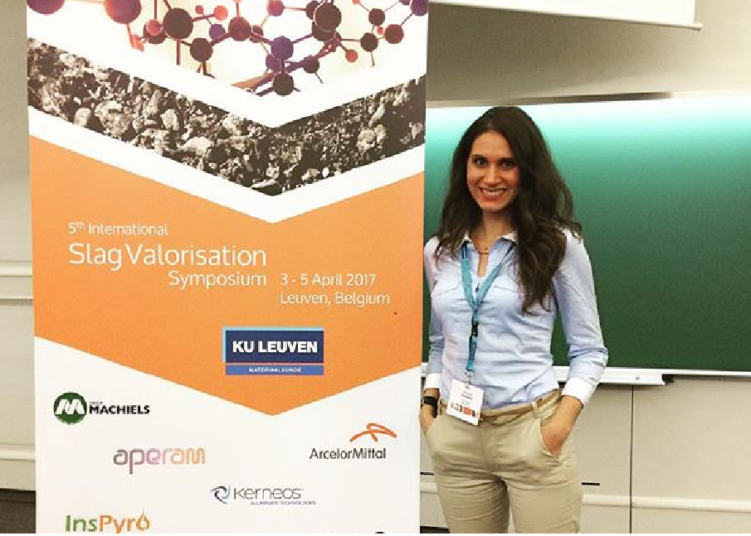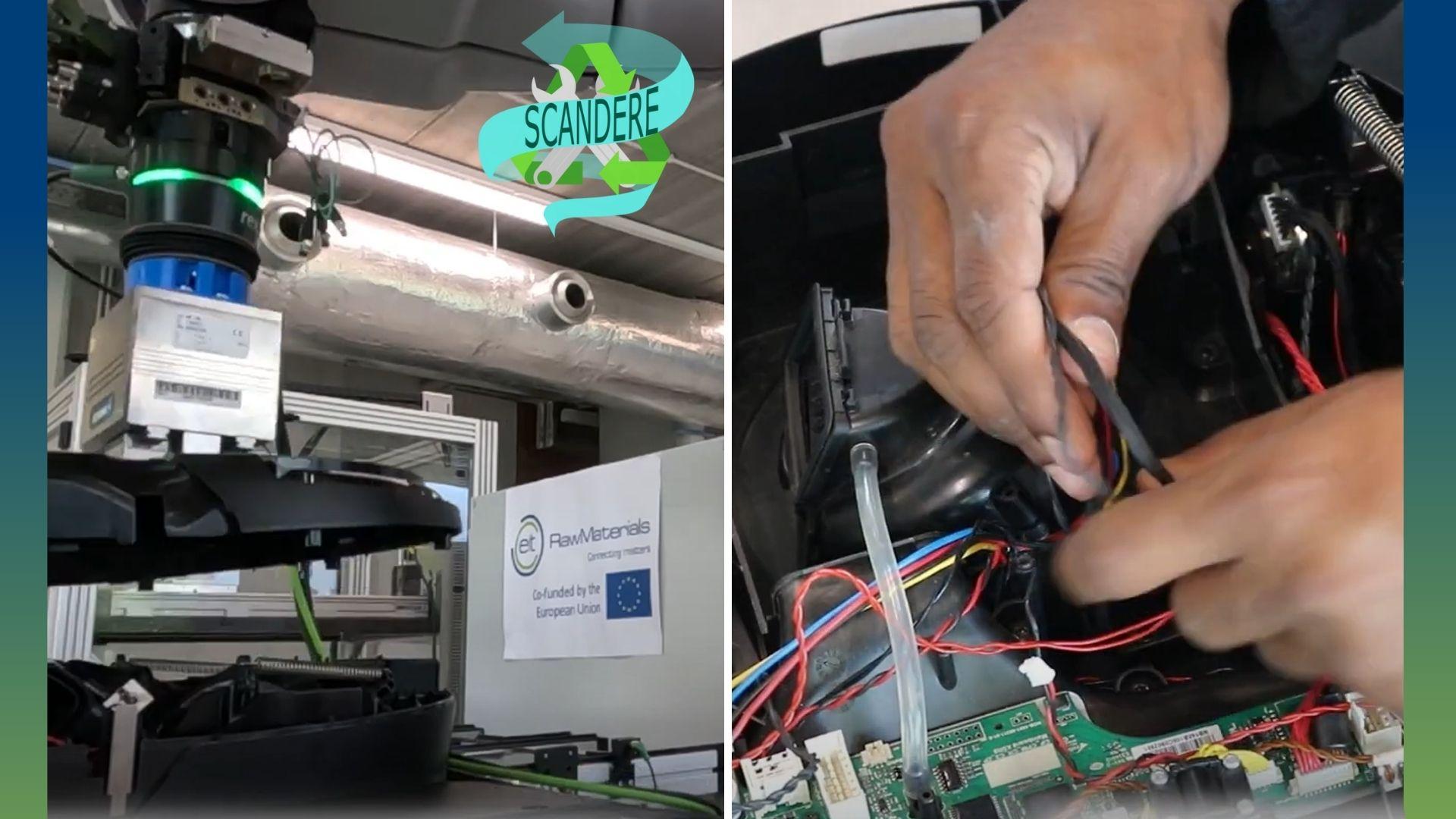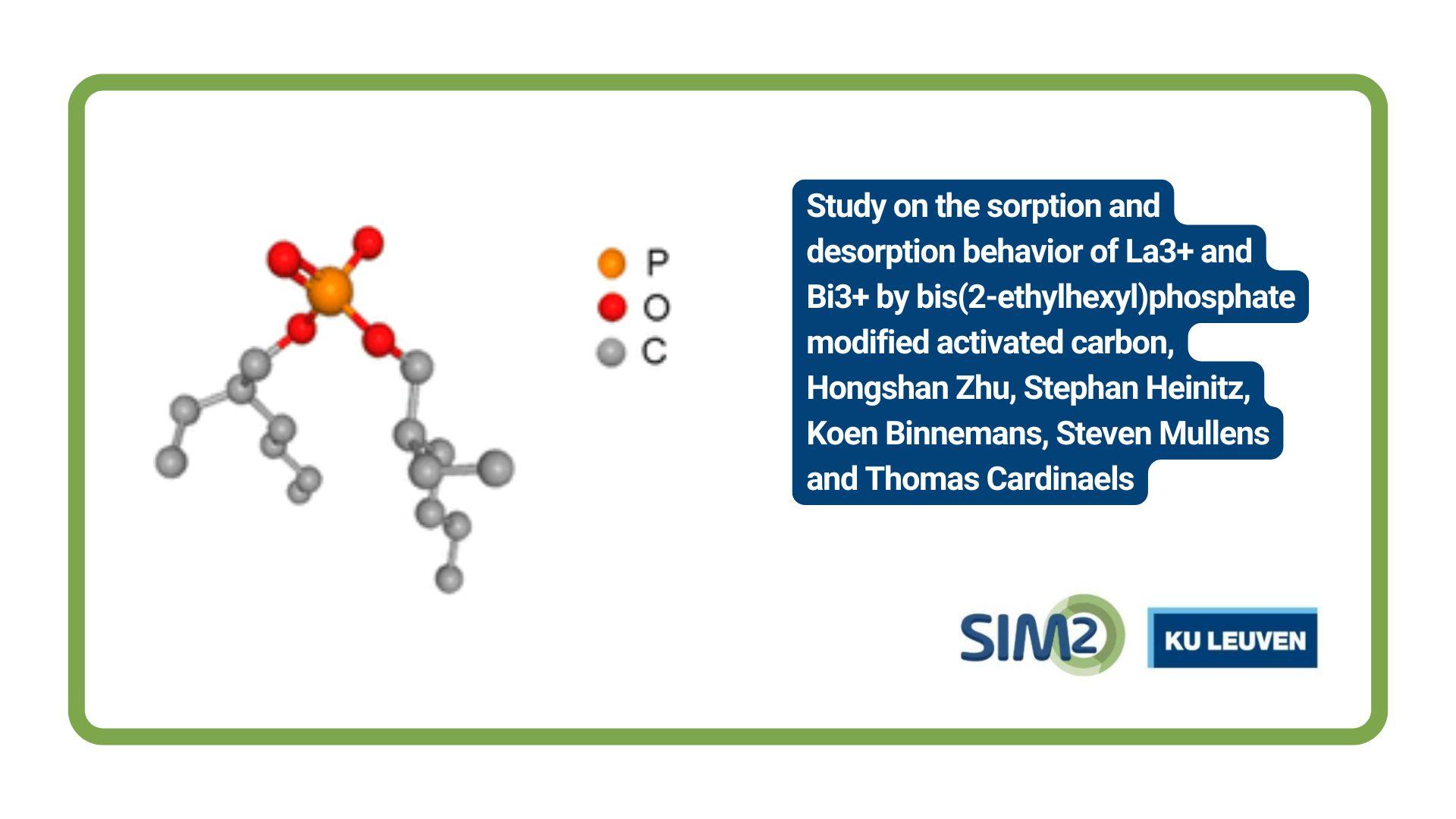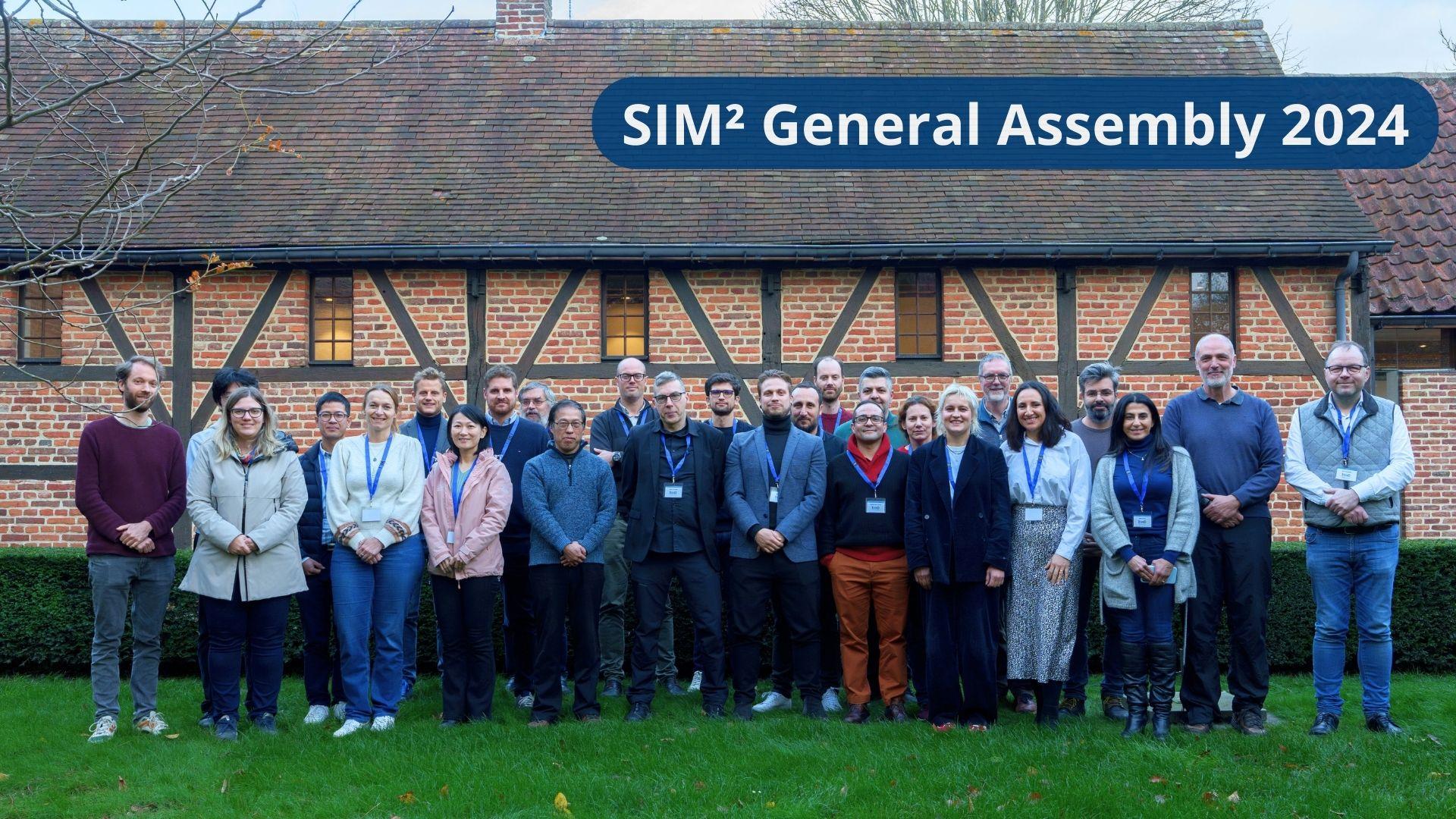Georgia Flesoura is a new SIM² KU Leuven researcher working on inorganic polymers (supervised by Prof. Yiannis Pontikes and Prof. Jef Vleugels) in the framework of the EU Horizon 2020 project NEW-MINE. In the interview you can get to know more about this ETN NEW-MINE PhD researcher.
Why did you chose to come to work at SIM² KU Leuven?
The ETN NEW-MINE project (i.e. H2020 Training Network on Enhanced Landfill Mining) encouraged me to tackle the great challenge of continuing my studies and work as a researcher in an excellent and innovative educational institute, as KU Leuven is. By being a member of the science community, I have the chance to gain valuable experiences, in-depth knowledge, and become a well-equipped scientist and engineer. My stay in Belgium allows me to meet other mentalities in a multicultural environment, which provides simultaneously various working opportunities.
What are you working on?
I am working on transforming the municipal solid waste incinerator bottom ash (MSWI BA) into a valuable product, an inorganic polymer, which can be used as a building material. Firstly, we give the bottom ashes a thermal treatment in a microwave furnace. Next, after subsequent quenching, a highly amorphous material is obtained. The activation of this material with an alkali solution is then the final step for the synthesis of inorganic polymers. Apart from reviewing this procedure, I am also working to form a thermodynamic model in order to select the most promising additives and thermal treatments based on the composition of the specific incoming residue, as well as to predict the outcome of the slag.
What attracts you in the research project you are working on?
The high level of the educational personnel affiliated with the research project is one of the points that attracts and encourages me to work harder. Also, the innovative and groundbreaking aspect of the project, which strives to make our world better by promoting new eco-friendly technologies towards a zero-waste society, makes me feel blessed that I am part of it. I hope to contribute as much as possible to this innovative technology.
If you could change one choice you made, what would you change?
I feel very lucky that up to now I haven’t felt the necessity to regret for a choice I made, as they all met the expectations I had in life. I hope this continues also in the future.
What characteristic do you most admire in others?
While being surrounded by colleagues and friends, I constantly assess and discriminate the positive things, which motivates me to improve myself. I really admire when other people are kind and generous. Nowadays, it is really essential for me to find people that blow positive energy and love. Being simultaneously strong, powerful and filled of passion for life and new experiences, without being afraid of the potential fears, makes me really fan of these kind of people. I hope to live up to their example and equally share this positive ‘vibe’ among my friends and colleagues.
How do you recharge?
Working as a researcher requires lots of hours either at the office or at the laboratory. The way for me to recharge is my occupation with art. After another long day in the lab, I come home and can truly relax by playing my favorite songs on piano or I can completely unwind by dancing ballet. I am very happy to know that Leuven is a city that offers many activities, either individual or collective, as long as one has the desire to discover them.
 Bio: Georgia Flesoura was born in 1993 in Athens, the capital of Greece. She studied in the school of Mining and Metallurgical Engineering at National Technical University of Athens (NTUA), where she obtained her Bachelor and Master Degree, in 2016. During her bachelor studies, she had the opportunity to do a short internship in Aluminium of Greece, Europe’s most modern vertically integrated alumina and aluminium plant. During her masters, she specialized in metallurgical processes and worked on her thesis again in Aluminium of Greece, working as an aluminium process engineer at the department of electrolysis. After completing her master degree, she was selected for a position as Early Stage Researcher (ESR) in the ‘European Training Network for Resource Recovery Through Enhanced Landfill Mining’ (‘ETN NEW-MINE’). Since December last year, you can find her working at the department of Materials Engineering (KU Leuven) under the supervision of prof. Yiannis Pontikes and prof. Jef Vleugels. As such, she is part of the SREMat (Secondary Resources for Engineered Materials) group where she seeks to synthesize inorganic polymers as alternative building materials coming from municipal solid waste incinerator bottom ashes.
Bio: Georgia Flesoura was born in 1993 in Athens, the capital of Greece. She studied in the school of Mining and Metallurgical Engineering at National Technical University of Athens (NTUA), where she obtained her Bachelor and Master Degree, in 2016. During her bachelor studies, she had the opportunity to do a short internship in Aluminium of Greece, Europe’s most modern vertically integrated alumina and aluminium plant. During her masters, she specialized in metallurgical processes and worked on her thesis again in Aluminium of Greece, working as an aluminium process engineer at the department of electrolysis. After completing her master degree, she was selected for a position as Early Stage Researcher (ESR) in the ‘European Training Network for Resource Recovery Through Enhanced Landfill Mining’ (‘ETN NEW-MINE’). Since December last year, you can find her working at the department of Materials Engineering (KU Leuven) under the supervision of prof. Yiannis Pontikes and prof. Jef Vleugels. As such, she is part of the SREMat (Secondary Resources for Engineered Materials) group where she seeks to synthesize inorganic polymers as alternative building materials coming from municipal solid waste incinerator bottom ashes.





